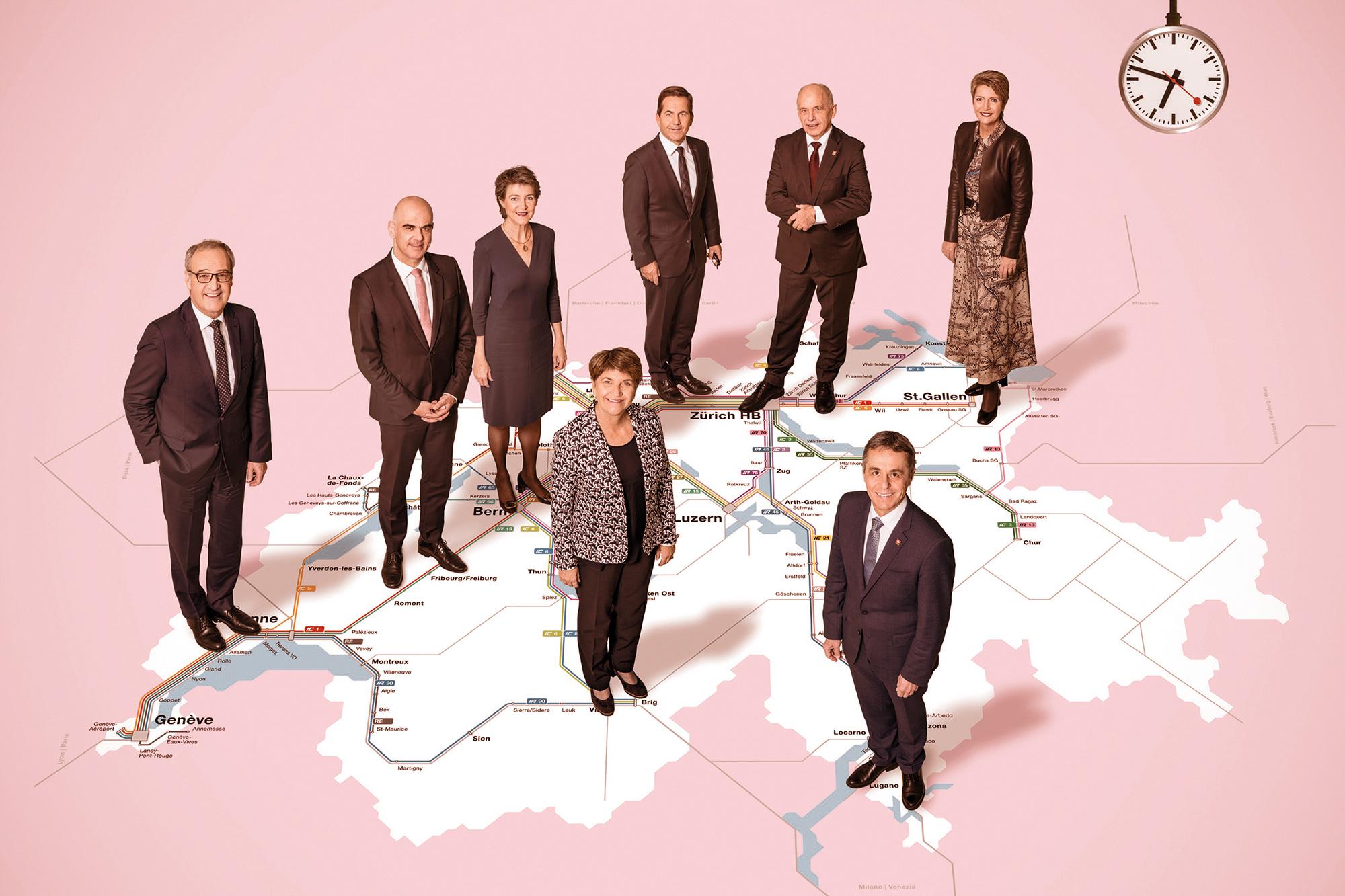Federal Councillors don’t galvanise voters in their home cantons

When a new Federal Councillor is chosen, their home canton is always a much-discussed topic. Yet the results of referendums are hardly influenced by whether the voter's own canton is represented on the Federal Council or not.
Successors will shortly be chosen both for Ueli Maurer and for Simonetta Sommaruga. Ever since they announced their resignations, speculation about who will replace them has been rife. Interest is focused not only on party and gender, but also on the candidates' home canton. After all, every canton and each of Switzerland's linguistic regions would like to be represented on the top government body – or so it is said.
"Switzerland is very federal, and the aim has always been to involve minorities in government," says Sean Müller of the University of Lausanne – a political scientist funded by the Swiss National Science Foundation. But with only seven seats on offer it's never possible to include everyone, so someone is always dissatisfied. That's why, prior to the election of Ignazio Cassis, Ticino was pushing hard to be at last awarded a seat again on the Federal Council. "As a researcher, though, I've always wondered if it's really that important for voters in the individual cantons and language regions to be represented on the Federal Council."
So that's the question that Müller decided to investigate. He collated the data from all 670 referendums held in Switzerland between 1848 and February 2022 and sorted them by canton. His results show that the presence or absence of a representative from a voter's own canton on the Federal Council barely correlates with different outcomes.
Cantons don't follow "their" Federal Councillor
Müller did admittedly detect some effects, but they were minor: in French-speaking Switzerland, having a representative of one's own canton on the Federal Council increased participation in referendums by a few percentage points. In German-speaking areas, however, there was no perceptible effect. And in Ticino, a seat on the Federal Council was actually associated with a lower turnout – as seen during the term of office of Flavio Cotti from 1987 to 1999, when an average of 39% of the canton's electorate took part in federal referendums (as opposed to 42% in the period preceding the appointment of Ignazio Cassis in November 2017). Following this surprising result, Müller decided to dig deeper and conduct further investigations.
"These minimal effects clearly disprove the oft-cited hypothesis that cantonal representation on the Federal Council stimulates popular interest in national politics," says Müller. He believes his results are very robust, as he did not just evaluate a sample but the full historical dataset.
Müller also investigated whether voters in referendums followed the recommendations of the Federal Council when their canton was represented on this body – e.g. because they could identify more closely with the government when one of the Federal Councillors spoke their own language or dialect. But here, too, no significant effects were evident. In June 2021, for example, Simonetta Sommaruga's CO2 law was rejected by just as narrow a margin in the Canton of Bern as in the rest of Switzerland – the "yes" vote was 48.4% as against 48.5% nationwide. And in the referendum held in February 2017, Ueli Maurer's corporate tax reform III actually met with less acceptance in his home canton (yes votes in Canton Zurich: 37.5%; yes votes nationwide: 40.9%).
Cantons are a simple category for the media
"Clearly, other factors such as party affiliation or whether the voter lives in the countryside or in a town, have a much bigger influence on their voting behaviour than the Federal Councillor's origin," Müller explains. He found much more heterogeneity within the cantons than within the language regions or between cantons.
But why then is the canton of origin such a big issue when it comes to choosing candidates for the Federal Council? "Aside from party and gender, cantons are a quite simple category for the media to pick on," says Müller. He also points out that most of Swiss politics takes place at the cantonal level. For example, there are no real national elections. All politicians who get to say something during a campaign represent a canton, and so it's also in their interest to bring this into the conversation when they stand for election to the Federal Council – even if the electorate ultimately doesn't care where candidates come from.